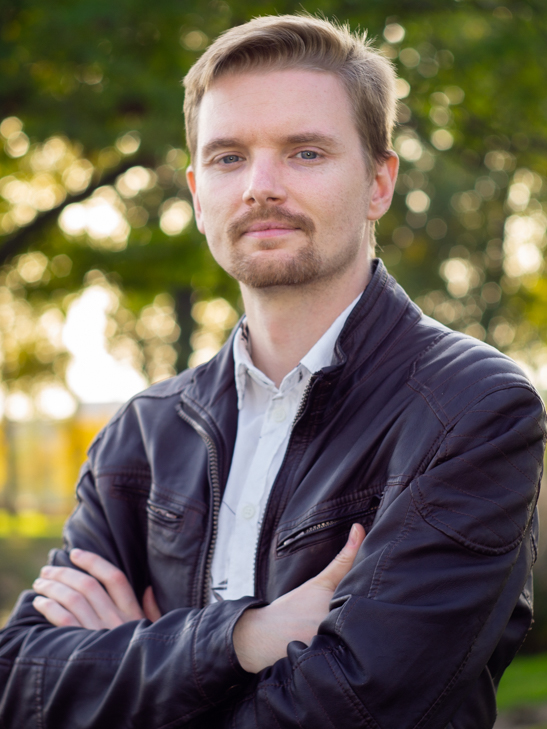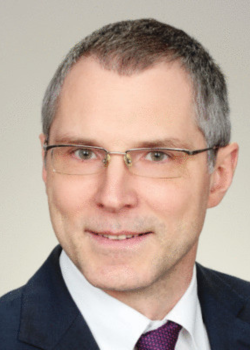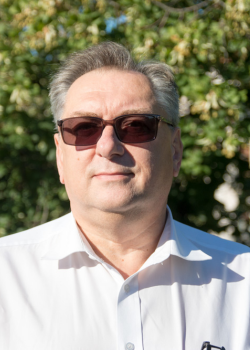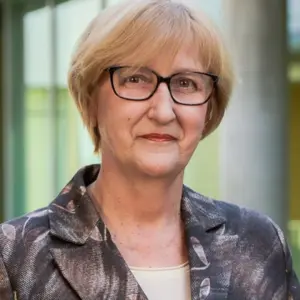Training for Public Officials
Community Resilience and Crisis Management – Modern Methods, Tools, and Practices for Responding
to Threats
Date: 16.05.2025 and 30.05.2025, 9:00–14:00
Topics:
- Crisis management from the perspective of public administration
- Implementing a community resilience approach in crisis management
- Innovative methods of effective crisis communication in local communities
- Modelling hazard zones of hazardous substances release
Objectives:
- To increase knowledge of the role of public administration in crisis management, decision-making and coordination of response actions.
- To develop skills in supporting community resilience through identification of key factors and implementation of practical tools and methods.
- To enhance effective crisis communication using modern technologies in relations with residents and emergency services.
- To master chemical hazard modelling and assessment of their impacts with the ALOHA software in various emergency scenarios.
Outcomes:
Participants will:
- Understand the importance of community resilience and analyse the factors influencing its adaptive capacity.
- Apply practical tools and technologies supporting crisis management and communication in emergency situations.
- Develop skills in decision-making and coordination of emergency services under pressure and uncertainty.
- Acquire knowledge and practical skills in chemical hazard modelling and assessing their effects.
Verification methods: Practical tasks, quiz, and discussion.
Training format: On-site training with exercises and interactive lecture.
Crisis Management in Local Communities: From Building Resilience and Trust to Hazard Modelling
Date: 11.04.2025 and 14.05.2025, 9:00–14:00
Training within the project “Community Empowerment: Crisis-Ready Solutions”
Objectives:
- To enhance knowledge of threats and the role of community resilience in crisis situations.
- To identify factors that strengthen or weaken a community’s ability to respond and adapt.
- To build trust and effective communication between residents and institutions.
- To learn how to identify threats, assess risks, and use tools such as ALOHA.
Outcomes:
Participants will:
- Be able to identify threats and conduct risk analysis in crisis situations.
- Understand the factors influencing community resilience and the role of residents in decision-making.
- Model hazards using tools such as ALOHA and apply the results in practice.
- Communicate effectively in crises, fostering trust and cooperation within the local community.
Verification methods: Practical tasks, quiz, and discussion.
Training format: On-site training with exercises and interactive lecture.
Community Crisis Management in Practice: Communication, Resilience and Risk Modelling
Date: 21.03.2025 and 28.03.2025, 9:00–14:00
Training within the project “Community Empowerment: Crisis-Ready Solutions”
Objectives:
- To acquire the ability to identify threats and conduct risk assessment in crisis situations.
- To develop knowledge on building community resilience to various threats.
- To master the principles of effective crisis communication using multiple information channels.
- To gain practical skills in chemical hazard modelling with the ALOHA software.
Outcomes:
Participants will:
- Be able to identify threats and analyse risks in crisis situations.
- Be familiar with hazard modelling tools and apply them in decision-making.
- Formulate actions that enhance community resilience based on risk analysis.
- Communicate effectively in crisis situations, reducing information chaos and ensuring message clarity.
Verification methods: Practical tasks, quiz, and discussion.
Training format: On-site training with exercises and interactive lecture.
Contents:
- Fundamentals of crisis management
- Basics of community resilience approach in the context of crisis management
- Crisis communication: tools, strategies, and practice
- Modelling hazard zones of hazardous substances release
Metodologies of Statistical Research
Date: 06.07.2024, 9:00 - 12:00
Trainer: Dr inż. Rafał Mierzwiak
Metodologies of Statistical Research
Objectives:
- To provide participants with knowledge of the basics of social research methodology,
- To enable understanding of various data collection techniques in social sciences,
- To provide basic theoretical preparation for conducting social research.
Outcomes:
- Participants will know the basic concepts and techniques related to social research,
- Participants will understand the principles of planning and conducting social research,
- Participants will have an understanding of the use of basic IT tools in the research process.
Verification: Tasks to complete, discussion, survey
Training form: Lecture, conversational exercises
Contents:
- Introduction to social research methodology
- Elements of the research process in social sciences
- Survey research as a data collection technique in social sciences
- Experimental designs as the basic causal scheme

Rafał Mierzwiak is currently working at the Faculty of Engineering Management at the Poznań University of Technology, where he leads the Laboratory of Quantitative Methods and Grey Systems. His scientific work focuses on the application of grey systems theory in management and quality sciences, with particular attention to methodological and epistemological issues. He actively collaborates with the leading research centers in the field of grey systems theory.
He currently serves as the Deputy Secretary-General of the International Association of Grey Systems and Uncertainty and is a member of The IEEE Systems, Man, and Cybernetics Society (SMCS) – TC on Grey Systems. He has participated in numerous international conferences where he has presented his research in plenary sessions. His papers and scientific articles have been repeatedly awarded by the grey systems theory research community. He has been involved in many international research projects. During his postdoctoral fellowship, he led a project funded by the China Postdoctoral Science Foundation at the Institute for Grey Systems Study at Nanjing University of Aeronautics and Astronautics.
Methodology of Designing and Producing Educational Video Materials
Date: 13.06.2024, 13:30 – 16:30
Trainer: Dr. Adam Pietrzykowski

Practitioner and Theorist of Online Education, to which he has dedicated several publications and a doctoral dissertation. A certified online learning methodologist, as well as a CISCO network engineer and e-learning platform developer. Since 2007, he has been involved in the development of academic e-learning at the Adam Mickiewicz University in Poznań (UAM). He has participated in e-learning projects from various fields: designing corporate training, creating courses for the academic environment, and developing and maintaining e-learning platforms. Since 2013, he has co-created the Film Section team at the UAM Marketing Center, where he is involved in the production of educational and promotional video materials and trains university staff in this area. He is the author of award-winning educational films and photographs: www.pietrzykowski.art.
Training Course - Regulations and Law in Crisis Risk Management in Local Communities in Poland: Theoretical Foundations and Practical Implementation of Crisis Management at the County and Municipal Level
Date: 13.05.2024, 12:00 – 15:00 and 15.05.2024, 12:00 - 15:00
Trainers: Maciej Szuba, Paweł Kurosz
Training as part of the project “Community Empowerment: Crisis-Ready Solutions”
Regulatory and legal support for risk management, i.e., experiences in standardizing the processes of preventing/responding to/eliminating crisis situations in local communities in Poland, coordination between different levels of government and managing bodies during crisis situations at the local community level, the degree of centralization of management and reporting mechanisms; standardization of procedures and response protocols for various types of crisis situations in Poland.
Objectives:
- Presenting the structure and organization of the administrative apparatus in Poland.
- Outline of the legal system regarding the competences and tasks of public administration bodies in the area of civil protection.
- Discussing the organization of services responsible for the security of the state and citizens.
- Familiarizing participants with the current legal status regarding the organization of crisis management in Poland.
- Crisis management planning documents.
Outcomes:
- Understanding the legal foundations of public administration functioning.
- Knowledge of the relationships between authorities.
- Division of competences and responsibilities.
- Learning the principles of building and operating the crisis management system in Poland.
- Familiarization with planning documents related to crisis management at the county and municipal level.
- Understanding the specifics of threats and their assessment.
- Knowing the entities involved in the management process.
Verification: The knowledge acquired during the lecture is verified by a 10-minute test conducted at the end of the classes.
Training form: Lecture, analysis of source materials, discussion.
Contents:
-
Organization of Public Administration in Poland
- Administrative division of the country
- Division of administration
-
Organization of Services, Inspections, and Guards. Relations with Public Administration
-
Legal System in Poland
- Acts of generally applicable law in Poland – hierarchy
- Local law acts
- Constitution
- Voivode Act
- Regional self-government
- County self-government
- Municipal self-government
-
Legal Foundations of the Activities of Services, Inspections, and Guards
-
Tasks of Local Government in Ensuring Residents' Safety
-
Practical Implementation of Crisis Management at the County and Municipal Level
Link to the meeting:
13.05.2024https://teams.microsoft.com/l/meetup-join/19%3aalvBOIyPYBKbT00plR8qoCRpvnzg-c01o6DwWMxnChA1%40thread.tacv2/1715587071032?context=%7b%22Tid%22%3a%22e8ccb6ac-6b28-43b1-8323-2cdba13ef6e1%22%2c%22Oid%22%3a%224e78d37a-7cf8-47d3-846b-4c8764010ce4%22%7d
15.05.2024https://teams.microsoft.com/l/meetup-join/19%3aalvBOIyPYBKbT00plR8qoCRpvnzg-c01o6DwWMxnChA1%40thread.tacv2/1715587336987?context=%7b%22Tid%22%3a%22e8ccb6ac-6b28-43b1-8323-2cdba13ef6e1%22%2c%22Oid%22%3a%224e78d37a-7cf8-47d3-846b-4c8764010ce4%22%7d
Test: https://forms.office.com/e/KPQ67FnJk5
Survey: https://forms.office.com/e/QE4hS0wE5T

Paweł Kurosz - Director of the Department of Security and Crisis Management at the County Office in Poznań.
I possess deep practical and theoretical knowledge in the functioning of local government administration and its relations with government administration, companies, and other entities. I am capable of achieving set goals by effectively leading a team of colleagues. I demand the most from myself. I am open to new challenges and constantly strive to improve what I do and how I do it. I do not like the phrase "because it has always been this way," although I appreciate good and proven solutions. I enjoy interacting with people and am skilled at building good relationships, which helps in my work.

Maciej Szuba - For 20 years, Vice-Chairman of the County Security and Order Committee of the Poznań County.
Retired criminal police officer, Head of the Criminal Department of the Provincial Police Headquarters in Poznań, the first City Police Commander in Poznań, participant in international training and courses for police officers in the USA.
Training Course - Preparing an Analytical Document in Policy Papers Analysis
Date: 24.04.2024 12:00 – 15:00
Trainer: dr. hab Yevhen Revtiuk
Training within the project "Community Empowerment: Crisis-Ready Solutions"
Objectives: Familiarization with theoretical approaches to policy analysis. Acquisition of knowledge and skills in preparing analytical documents.
Outcomes: Understanding the principles of shaping and implementing state policy. Ability to develop a methodology for researching the effectiveness of state policy. Skills in developing criteria for analyzing alternatives. Ability to prepare an analytical document.
Verification: Knowledge acquired during the lecture is verified by a 10-minute test conducted at the end of the session.
Training format: Lecture, discussion
Contents:
Block 1. The concept of public policy. The public policy development cycle. The role of analytical research in the preparation and implementation of public policy.
Block 2. Methodology for preparing analytical documents.
Meeting link: https://teams.microsoft.com/l/meetup-join/19%3aalvBOIyPYBKbT00plR8qoCRpvnzg-c01o6DwWMxnChA1%40thread.tacv2/1713850103291?context=%7b%22Tid%22%3a%22e8ccb6ac-6b28-43b1-8323-2cdba13ef6e1%22%2c%22Oid%22%3a%224e78d37a-7cf8-47d3-846b-4c8764010ce4%22%7d

Training Course - Contemporary Trends in Crisis Management: Management, Security, and Communication Aspects
Date: 16.04.2024 11:30-15:00
Trainers: dr hab. inż. Magdalena Wyrwicka, prof. PP; dr inż. Tomasz Ewertowski
Training within the project "Community Empowerment: Crisis-Ready Solutions"
Objectives: Systematization of basic knowledge related to risk management issues used in crisis management.
Outcomes: Knowledge of risk analysis, threats, and their effects associated with the occurrence of crisis situations. Ability to properly assess risk and formulate related conclusions. Competencies related to risk management in the event of a crisis situation.
Verification: Knowledge acquired during the lecture is verified by a 10-minute test conducted at the end of the session.
Training format: Lecture, discussion.
Contents:
Block 1. Risk Management in Crisis Online multimedia presentation. Discussion of concepts related to uncertainty, risk, crisis, crisis situation, crisis management, and risk management.
Block 2. Specifics of applying selected norms and international risk management standards at the level of local communities Online multimedia presentation. Discussion of selected norms and standards in risk management.
Block 3. Selected methods used in local-level risk assessment Discussion of selected methods used in assessing the risk of crisis situations.
Meeting part 1 link: https://teams.microsoft.com/l/meetup-join/19%3ameeting_NTIwOTNjZDktOTcxYy00OWNiLWE4ZjEtNjI5ZjYwN2I4Njdl%40thread.v2/0?context=%7b%22Tid%22%3a%22e8ccb6ac-6b28-43b1-8323-2cdba13ef6e1%22%2c%22Oid%22%3a%224e78d37a-7cf8-47d3-846b-4c8764010ce4%22%7d

Dr. hab. Magdalena Wyrwicka is a professor at the Poznań University of Technology.
From 2008 to 2014, she served as Vice Dean, and from 2014 to 2020, she was the Dean of the Faculty of Engineering Management. She is currently associated with the Institute of Safety and Quality Engineering, Department of Marketing and Organizational Development.
Her scientific interests focus on endogenous development premises (human capital, organization, enterprise, economic network, city, region).
She is the author or co-author of 265 publications and has supervised 10 doctoral theses.
She teaches courses in organizational development, project management, and human resource management. She is a licensed instructor of the German REFA Association.
Since 2008, she has been a member of the Organization and Management Committee of the Poznań Branch of the Polish Academy of Sciences, and since 2015, a member of the Board of the Poznań Branch of the Polish Economic Society.
For her project "Foresight – Economic Networks of Wielkopolska – Transformation Scenarios Supporting an Innovative Economy," the Poznań University of Technology received an award at the XX Economic Forum Innovation Forum in 2010.

Dr. Tomasz Ewertowski is a graduate of the Military University of Technology in Warsaw with a specialization in aviation. He has extensive experience in managing safety systems acquired during his work in various positions related to supervising the operation of aircraft in aviation units and managing flight safety in the institutions of the Ministry of National Defense. During this time, he completed many courses related to safety management both domestically and abroad (e.g., in France and the USA). From 2006 to 2015, he was a member of the Aviation Flight Safety Committee of the European Military Aviation (AFFSCE). From 2004 to 2011, he participated in or chaired the Commissions for the Investigation of State Aviation Accidents. From 2010 to 2016, he implemented innovative solutions related to risk management and the safety management system in the aviation of the Armed Forces of the Republic of Poland. From 2011 to 2015, he led the Risk Management Working Group in the aviation of the Armed Forces of the Republic of Poland. Since 2017, he has been an assistant professor at the Faculty of Engineering Management at the Poznań University of Technology. His research interests include occupational and transport safety, safety management, risk management, crisis management, human factors, organizational resilience, investigation of adverse event causes, and rescue systems. He has supervised several dozen diploma theses (master's and engineering). He is a member of the Polish Ergonomics Society and a member of the faculty committee for education in the field of safety engineering. Open to international cooperation, he actively participates in the Erasmus+ Staff Mobility for Teaching program. He is a participant in national and international conferences, including, among others, Organizational Development Management and the International Seminar of Ergonomics. He is a reviewer for national and international journals and the author of several dozen articles and chapters in scientific monographs. He continually enhances his competencies, including obtaining certifications as a Lead Auditor of the Occupational Health and Safety Management System according to ISO 45001:2018 and an auditor of systems: business continuity management according to ISO 22301:2019 and information security management according to ISO/IEC 27001:2017.



